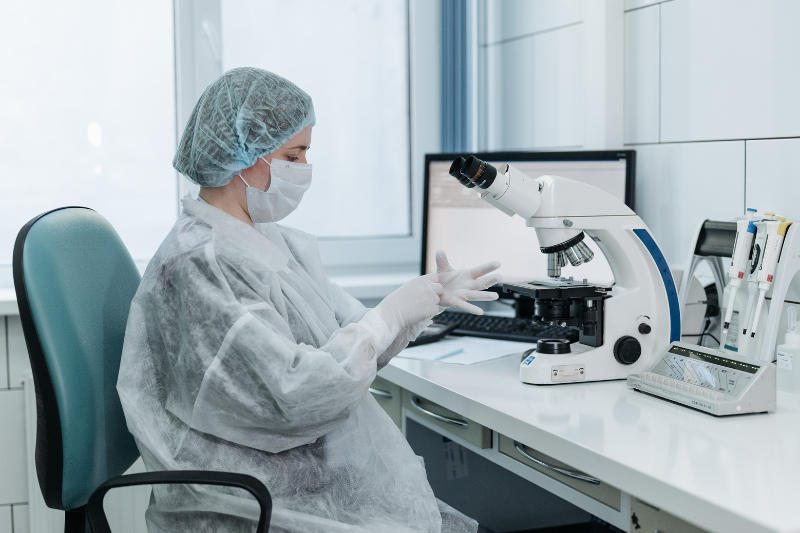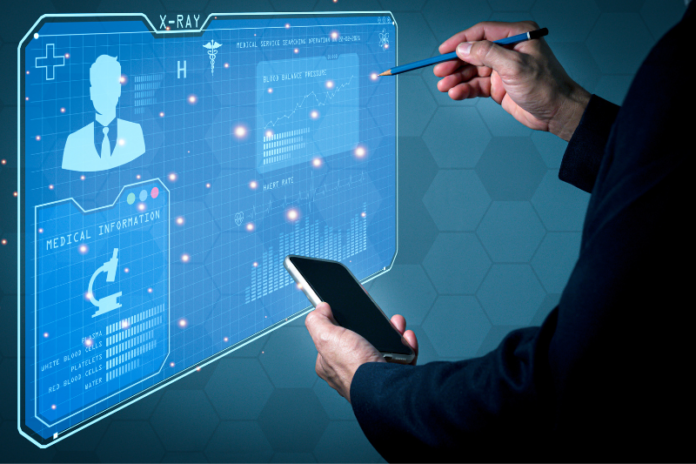Introduction
The healthcare industry is one of the most important and dynamic sectors in the world, as it affects the well-being and quality of life of billions of people. However, the healthcare industry also faces many challenges, such as rising costs, aging populations, chronic diseases, staff shortages, and access inequalities. To overcome these challenges, the healthcare industry needs to embrace and adopt innovative technologies that can improve its performance, efficiency, and outcomes.
Many technologies are transforming the healthcare industry, but here are some of the best ones:

Artificial Intelligence (AI)
AI is the use of algorithms and machine learning to perform tasks that normally require human intelligence, such as diagnosis, prognosis, treatment, and research. AI can help the healthcare industry in many ways, such as:
- Enhancing the accuracy and speed of diagnosis and prognosis, by analyzing large amounts of data, such as medical records, images, and tests, and providing insights and recommendations.
- Optimizing the effectiveness and personalization of treatment, by designing and testing new drugs, therapies, and devices, and tailoring them to individual patients’ needs and preferences.
- Improving the efficiency and productivity of healthcare operations, by automating and streamlining administrative tasks, such as scheduling, billing, and reporting, and reducing errors and costs.
- Advancing the innovation and discovery of new knowledge, by conducting and synthesizing research, finding patterns and correlations, and generating hypotheses and solutions.
- AI is already being used in many areas of healthcare, such as radiology, oncology, cardiology, dermatology, and neurology. For example, IBM Watson Health is a platform that uses AI to provide data-driven insights and solutions for various healthcare challenges, such as cancer care, drug discovery, population health, and clinical trials.
Internet of Things (IoT)
IoT is the network of physical objects, such as devices, sensors, and wearables, that are connected to the internet and can collect and exchange data. IoT can help the healthcare industry in many ways, such as:
- Monitoring and improving the health and wellness of patients, by collecting and analyzing real-time data, such as vital signs, activity levels, and medication adherence, and providing feedback and alerts.
- Enhancing the quality and accessibility of care, by enabling remote and telehealth services, such as consultations, examinations, and treatments, and reducing the need for hospital visits and admissions.
- Increasing the safety and security of patients and staff, by tracking and locating medical equipment, supplies, and personnel, and preventing theft, loss, or misuse.
- Supporting the decision-making and learning of healthcare professionals, by providing data-driven insights and guidance, and facilitating collaboration and communication.
- IoT is already being used in many areas of healthcare, such as chronic disease management, elderly care, home care, and emergency response. For example, Philips Healthcare is a company that offers various IoT solutions for healthcare, such as wearable biosensors, smart inhalers, and connected care platforms.
Wearables and Implants
Wearables and implants are devices that can be worn or implanted in the body, and can measure, record, and transmit physiological or biological data. Wearables and implants can help the healthcare industry in many ways, such as:
- Wearables and implants are already being used in many areas of healthcare, such as fitness and wellness, diabetes management, cardiac care, and neurology. For example, Verily is a company that develops and offers various wearables and implants for healthcare, such as smart contact lenses, glucose-sensing tattoos, and neural implants3.
- Empowering and engaging patients, by enabling them to track and manage their own health and wellness, and providing them with feedback and motivation.
- Enhancing the diagnosis and treatment of diseases and disorders, by providing continuous and accurate data, such as blood pressure, glucose levels, and heart rate, and delivering targeted therapies, such as drugs, electrical stimulation, or gene editing.
- Improving the functionality and quality of life of patients, by restoring or augmenting their abilities, such as vision, hearing, mobility, or cognition, and reducing their pain or discomfort.
- Advancing the research and development of new solutions, by enabling the collection and analysis of large and diverse datasets, and testing and validating new hypotheses and interventions.
These are some of the best technologies that are transforming the healthcare industry. Of course, many other technologies are also impacting the healthcare industry, such as cloud computing, blockchain, virtual reality, and biotechnology. The healthcare industry is constantly evolving and innovating, and technology is playing a key role in driving this change. Technology can help the healthcare industry achieve its goals of providing better, faster, cheaper, and more accessible care for everyone.
Disclaimer: The information provided in this guide is for informational purposes only and does not constitute legal or financial advice
For Media Enquiries/Guest Posting/Press Release – Write for us


